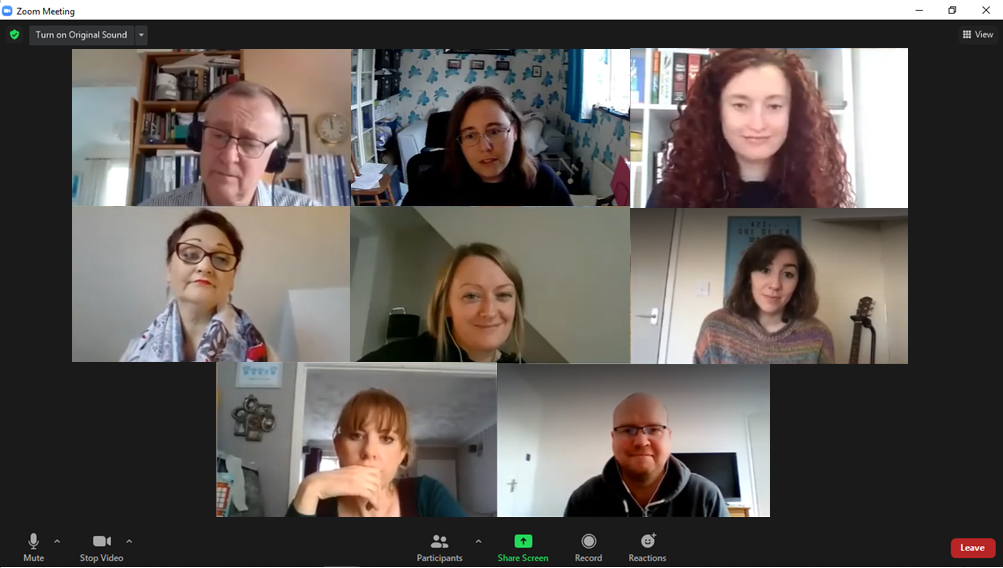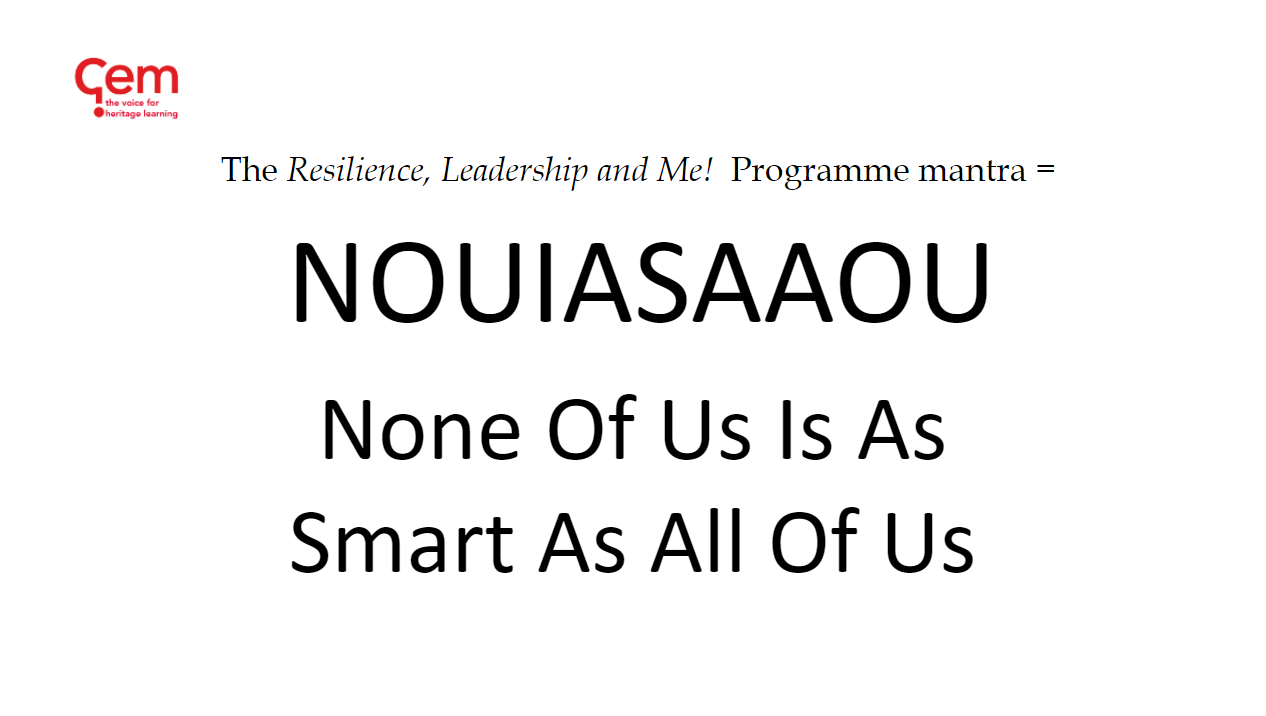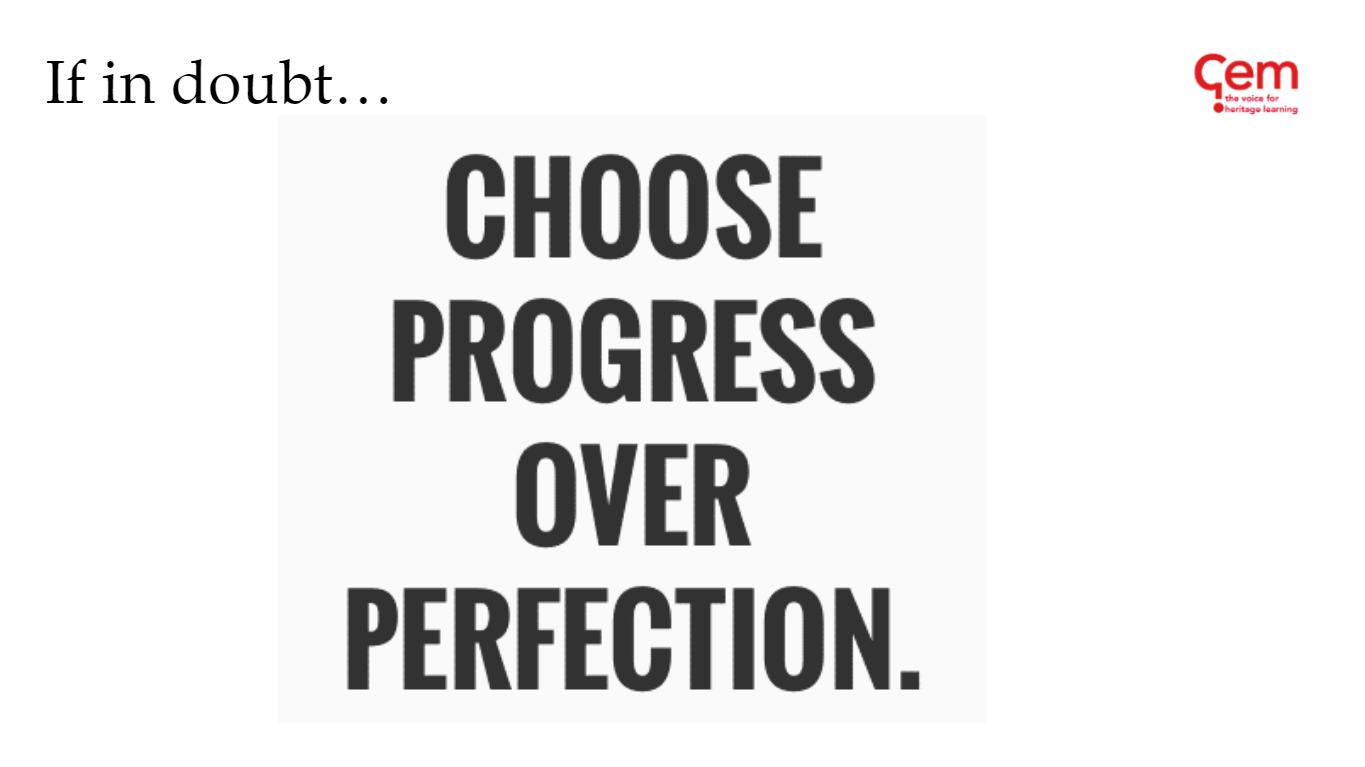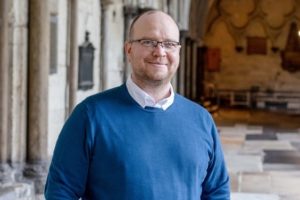A reflection on “Resilience, Leadership and Me”
By Aaron Paterson, Westminster Abbey
In the beginning
Amongst the ruins of our dreams for 2020, I’m sure I’ve not been alone in feeling stressed and stretched whilst inhabiting a shrunken world. I was on the busy side of the covid coin that has left us either rushing to learn new skills or furloughed at home desperate to be back at work.
Amid Zooming between meetings and planning family engagements for Westminster Abbey, I have also been running a business with my partner and chairing two London based networks:
- the Families in Museums Network
- the Young People’s Programmers’ Network (to a lesser extent)
I found I had little time to pause or reflect. I felt a bit flooded by the volume of work, marooned -not only from my colleagues but the wider sector. Overall, a bit lost at sea about my working life.
After a Families in Museums Network meeting, a compliment from a Head of Learning colleague about my leadership skills took me by surprise. I didn’t feel like I was leading anyone or anything, except perhaps a goose chase down a garden path.
The comment rang true to me from another life. Before my transition to museums and heritage, I had been a theatre director, leading companies of actors and backstage teams for many years. Building a community with a shared vision was always something I had enjoyed, but I had never registered that I was leaving these skills behind when joining the museum sector. This casual observation, tapping into my feelings of professional floundering, came at the perfect time.
GEM had announced the second round of their brilliant ‘One to One’ mentoring programme and it became clear I needed some clarity and external perspective. It was so refreshing to carve out time to reflect on (and talk about) myself and my career.
I had a wonderful mentor in Jo-Anne Sunderland Bowe. With time on my side again and with Jo’s encouragement, I was very pleased to join the cohort for the GEM ‘Resilience, Leadership and Me’ course led by Dr Nick Winterbotham. I don’t know that at the start of lockdown I would have seen myself applying for this course but as Nick wisely shared in one of sessions – sometimes from a breakdown you can find the breakthrough.
Resilience, Leadership and Me
From the outset, the level of communication was clear and welcoming. Nick shared an initial letter that came with five attachments of reading, tasks, self-assessments, stories and checklists. The materials intrigued me but also made me feel a little daunted. Would I have enough time to make the most of the course? More than that, I wasn’t sure what, or who else to expect on this course. I anticipated being out of my depth.
First session
The first session felt like the first day at school for me. With handouts ready and prepared, I laid everything out precisely and fussed over what to wear. A few initial WhatsApp messages were shared on the group that had been set up beforehand. Logging on, I was very pleased to see a couple of familiar faces, and plenty friendly smiles.

Nick was very welcoming, as was Melissa Maynard, who sent round all the letters and materials, established the WhatsApp group, and generally kept us in order week to week. They set a wonderfully open atmosphere, and we started with introductions and sharing drawings we’d crafted to sum up our organisations.
We were encouraged to explore the “why” of our work, not what we do or how we do it but what makes us want to do it. We looked at various leaders and were encouraged to consider who we value as great leaders, reflected on our relationships with leaders in the past and heard different quotes from museum sector leaders on what makes a good leadership.
Our final challenge, our homework, was to meet the chairperson of our organisation, discuss what leadership means and, in the middle of a pandemic, learn what plans there were for the future!
My conversation with Dr David Hoyle, Dean of Westminster, covered so much ground in twenty minutes that I’d need a separate blog to explore it! The encouragement and prompt to have the conversation and ask questions was a really important part of my learning. I’m grateful for the encouragement to have this conversation so early on in the course and for the Dean’s generosity with his time and frankness.

Second session
This time there was no general trepidation but this session was entitled “Down to Business”… Despite having run a theatre company and now a small media business, I would never describe myself as instinctively business or financially minded. I am a people person and not a number cruncher. I knew I wasn’t on comfortable ground.
Through our self analysis, breakout conversations, and presentations, we covered:
- entrepreneurship
- boards and trustees
- fundraising
- income generation
- dashboards
- managing workloads
- What wins in the battle between urgent and important?
It was a dense two hours to process. Afterwards, in our WhatsApp chat, I tentatively suggested a sort of seminar, a GEMinar if you will, to reflect on the session. Thankfully there was plenty interest and the marvellous Melissa even offered to take on the role of administering and hosting these sessions for us.
Third session
From the foreign shores of business to the home land of learning. This session covered a variety of learning theories, some less familiar, and some old comfort blankets — hello GLOs! We considered truth and transformations. This session was a wonderful opportunity to re-explore the area that we all love, to see it in a broader context and be pointed in the direction of new areas to discover.
The success of our previous GEMinar sessions encouraged another this week and Nick very generously joined the cohort to discuss the various learning theories in more detail. We pondered the importance of knowledge and facts against feelings and memories, particularly in family learning, and Melissa introduced many of us to Visible Thinking.

Final session
This last formal session asked us to consider a bigger picture and a longer journey. To reflect once again on our personal “why” for working in museum and heritage learning and how that might manifest in our career. As well as looking inwards, we tackled presenting ourselves outwardly, looking at how our CV reflects our motivations. We considered how to understand the lay of the land, seeing the broader sector and similar areas of work, to look for opportunities for ourselves and our organisations. We wrapped up with the message to “choose progress over perfection”.
The end
I have probably done a disservice to the course by breaking it into component parts because in many ways the course was a broad expansive whole that offered hand holds and compass points. Much of the work had to be completed by ourselves in between sessions and beyond.
We leave the course with very full toolboxes, well-examined mirrors, a rich range of resources and plenty of work still left to do. Though it is not all metaphors; putting reflection and thoughts into action I was very pleased to join SouthWestFest, a community festival in Westminster as a trustee, a role that I felt wasn’t for me six months before.
 I move on from this experience a little wiser and with a long distance view, armed with newfound confidence and supported by new colleagues and friends. If, wrapping up as we are in Lockdown 2, I am still out at sea then I have found the northern star and the beginnings of a map.
I move on from this experience a little wiser and with a long distance view, armed with newfound confidence and supported by new colleagues and friends. If, wrapping up as we are in Lockdown 2, I am still out at sea then I have found the northern star and the beginnings of a map.
Thanks Aaron for your contribution! We are excited to see what you get up to next.
